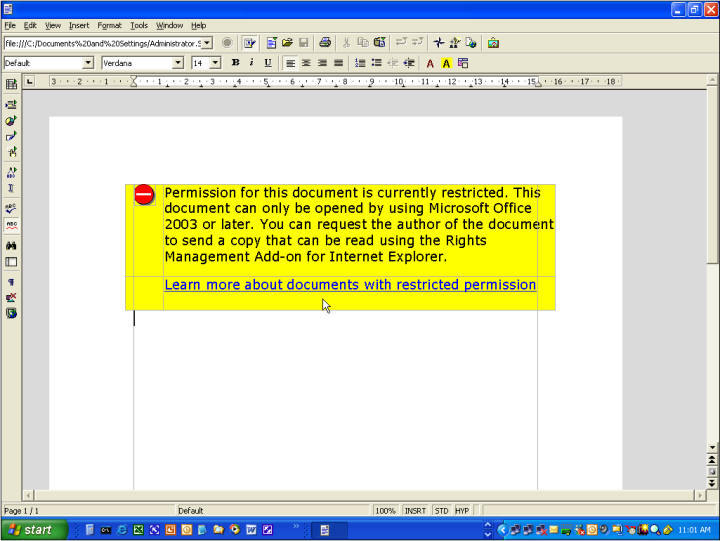
I spent a couple of days this week in Brussels talking with European Commission people and other vendors about a bunch of things, but DRM kept coming into the conversation. Herewith some doomsaying and paranoia; the whole idea is broken and going to cause severe damage and pain for content vendors, technology vendors, and ordinary folks who just want to go on with life.
There are really two little mini-essays here: first a sort-of-positive one about the impact on consumers, then a blast of pleasantly-pure paranoia about the downsides of DRM on the business desktop.
Most People Haven’t Noticed · The action here is intense and on a large scale. On the content side, the conventional music business model has been scrambled like an egg and the industry is trying to unscramble it; the movie people are trying to be pre-emptive. On the technology side, there’s the “Trusted Computing” initiative and the Broadcast Flag and lots of work over in MPEG-land. On the policy front there are torrents of US legislation already in place and more on the way, while Europe scrambles to get a grip on the situation.
But out there in the real world, most people’s lives haven’t been touched yet by DRM. A lot of people are headed for rude shocks when they try to move their music to their new computer and can’t, or try to send some video to a friend and can’t, and a hundred other obvious things become impossible.
For example, while I was originally impressed by Apple’s iTunes Music Store, it’s become obvious that buying old-fashioned CDs from old-fashioned music stores is a better deal. The sound quality is higher, and what I get is just a bunch of digital files that are mine and I can store on any computer I want to and play on any device I want to and nobody’s getting in the way.
What Do You Think’s Going to Happen? · We’ve seen this movie before. My younger readers may find this incredibly weird but it’s true: Not so long ago, it was illegal to buy a telephone. You could only rent them from the phone company, which had all sorts of good arguments why this was necessary to protect the integrity and quality and viability of the telephone network.
Of course, those arguments were a self-serving load of crap. Eventually, it became obvious that the standards were stable, you could buy phones and plug them in without breaking anything. The legislators swept those silly rules away and told the phone company to shut up and deal with it. And, oh yes, the phone business then experienced an explosion of innovation and revenue growth.
Right now, we have the DMCA and its ill-begotten brethren; all foisted on the unsuspecting public by legislators in the pay of the music and movie industries. They were able to get away with this because most people’s lives have never been touched by this crappy, intrusive, intolerable technology. Eventually they will be, and despite the fact that Western democracies are mildly corrupt, they are still democracies, and the people will one way or another say “Make this stop!” and the legislators will. At which point, the doors will be opened for another explosion of innovation and business growth.
Business Too · There’s another nasty dimension to DRM that has gone mostly un-noticed. Check out the picture below.
It turns out that the latest version of Microsoft Office comes with DRM facilities. Isn’t that great? Now everyone can protect their intellectual property.
Above, you see what happens when you try open a DRM-protected Word document in OpenOffice. (Note to geeks: Interestingly, the way it works is that the message you see is embedded in the document; Office 2003 is smart enough to know this and look elsewhere in the file for the real data.)
Imagine that: by introducing DRM, Microsoft can lock out competing office software from opening its data files. Does that make you paranoid? It should.
ContentGuard · In a lightly-reported story, Microsoft and Time Warner are jointly bidding to take over ContentGuard, a company that has some DRM products and a great big patent portfolio. ContentGuard has claimed that rights expression languages such as XACML necessarily infringe on their patents, and thus if you want to implement any such technology, you have to negotiate a license with them first.
If the patent claims hold up, there can’t ever be an Open-Source implementation of a rights language. Does that make you paranoid? It should.
